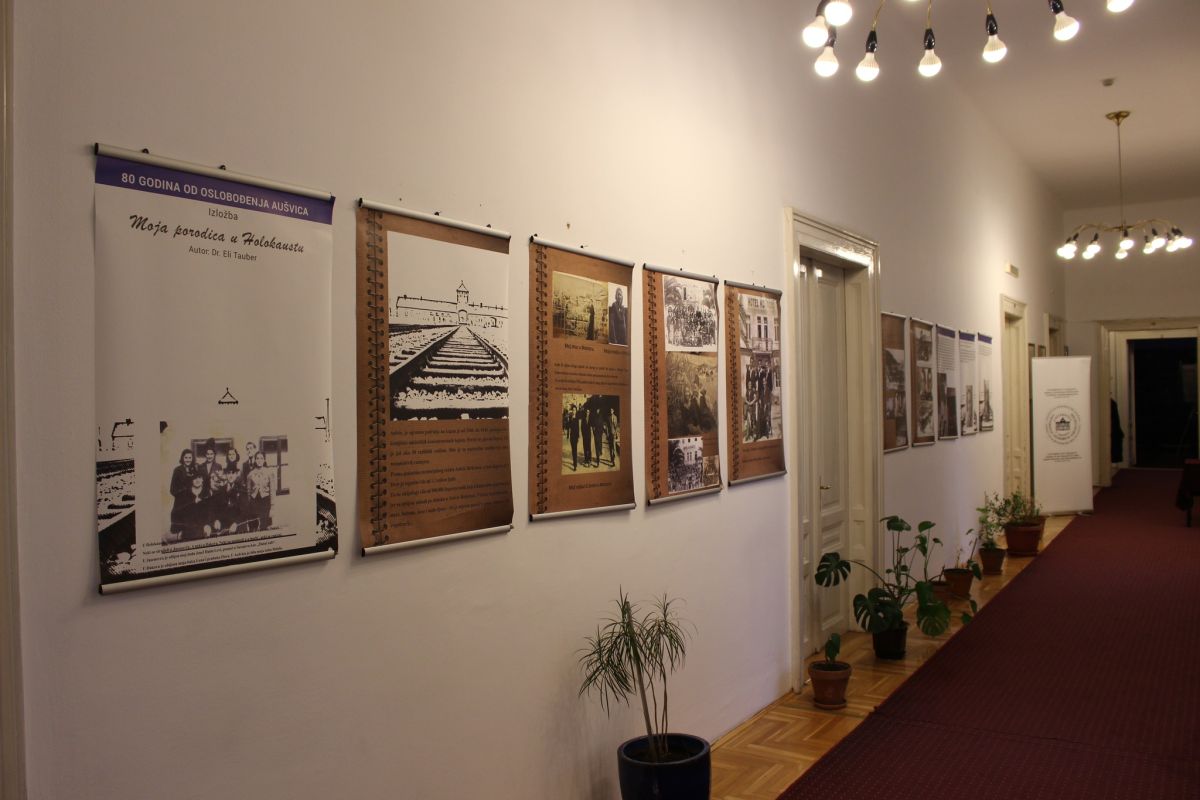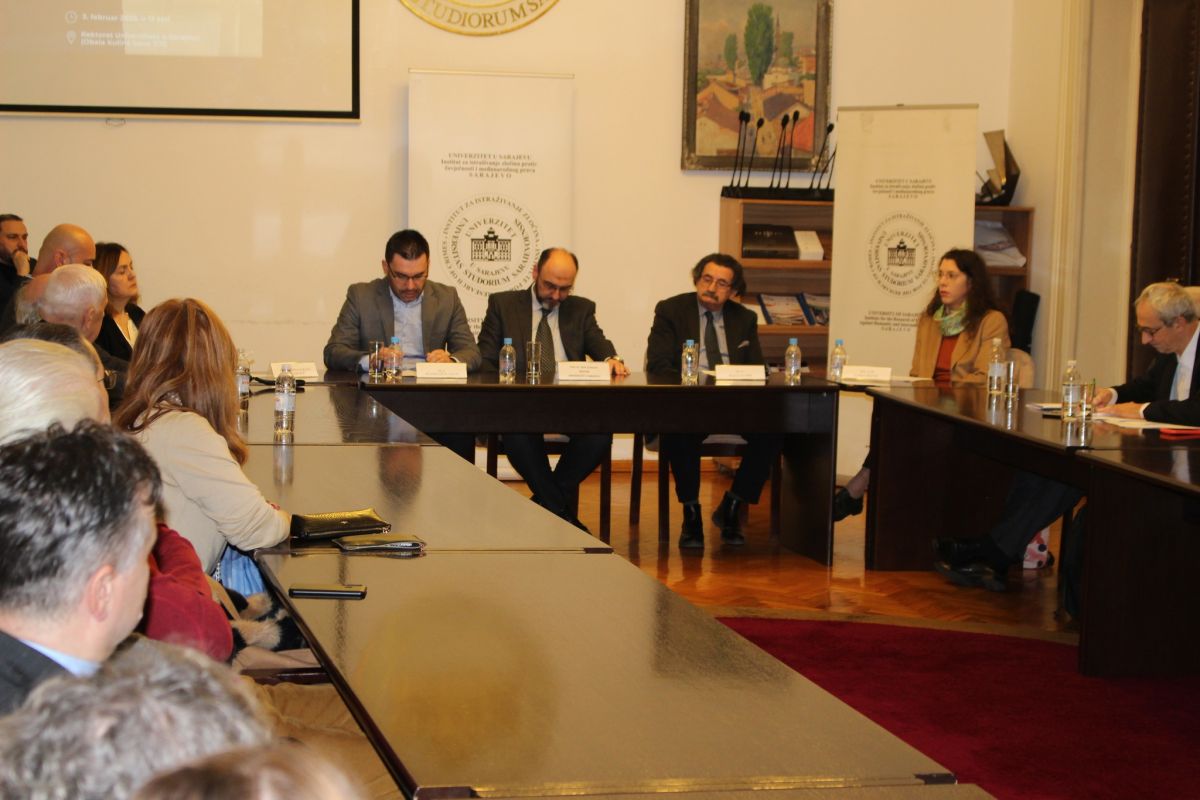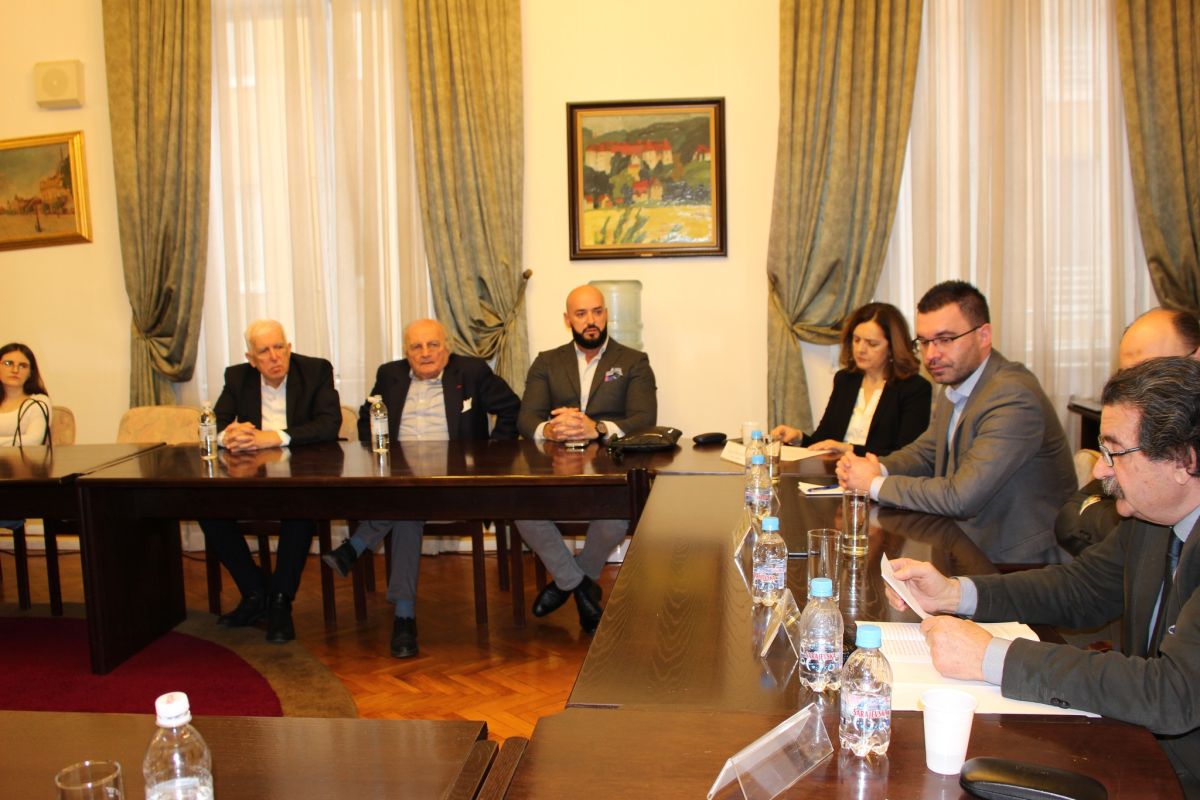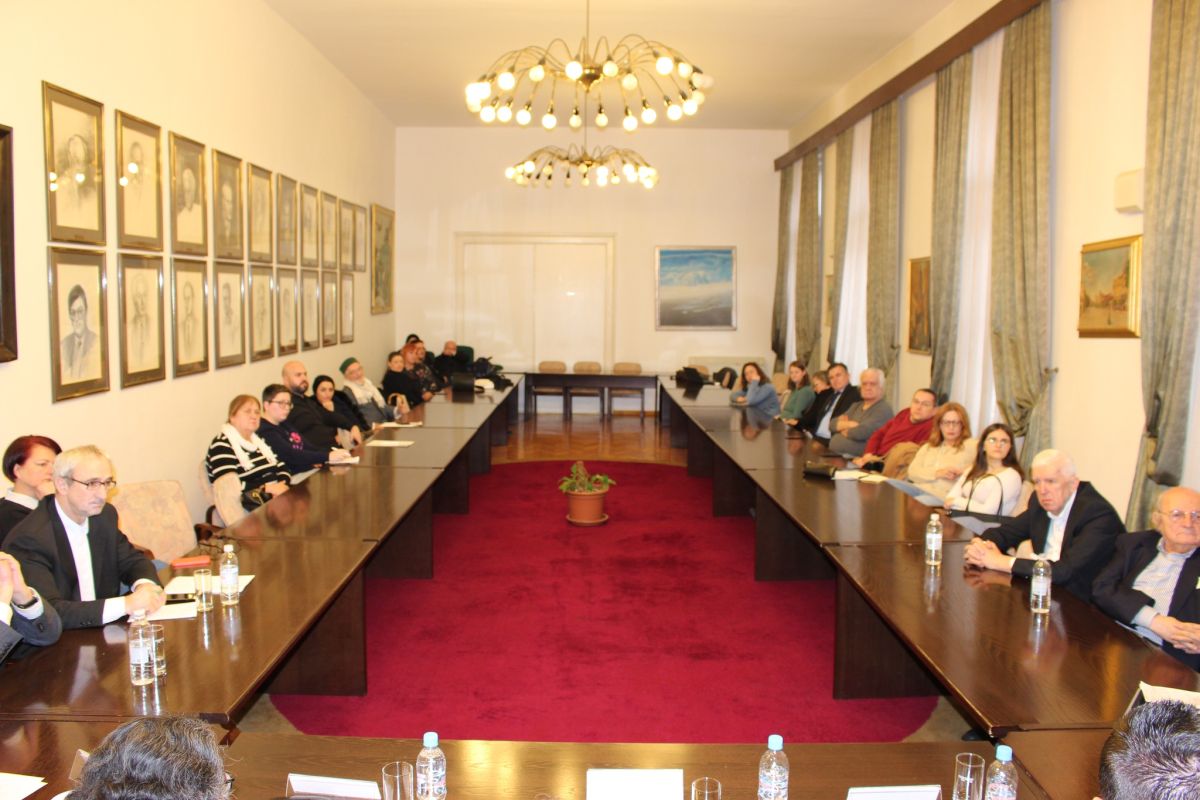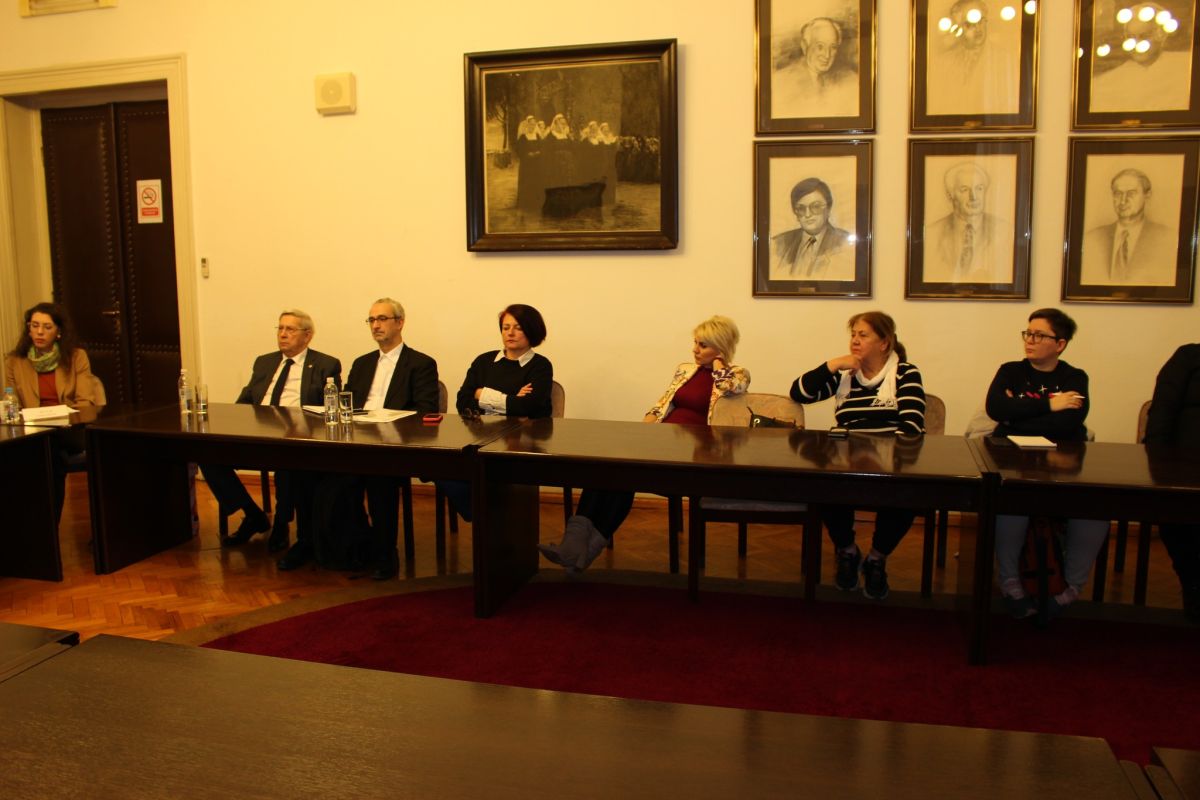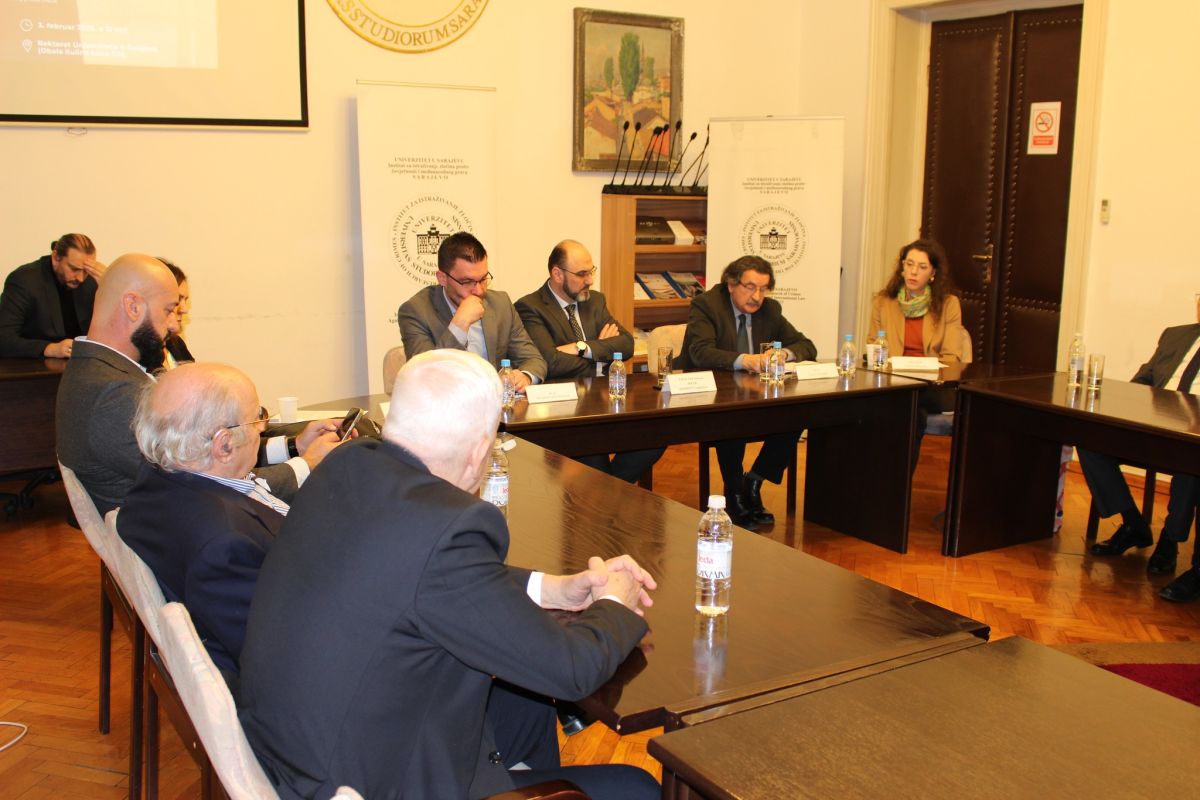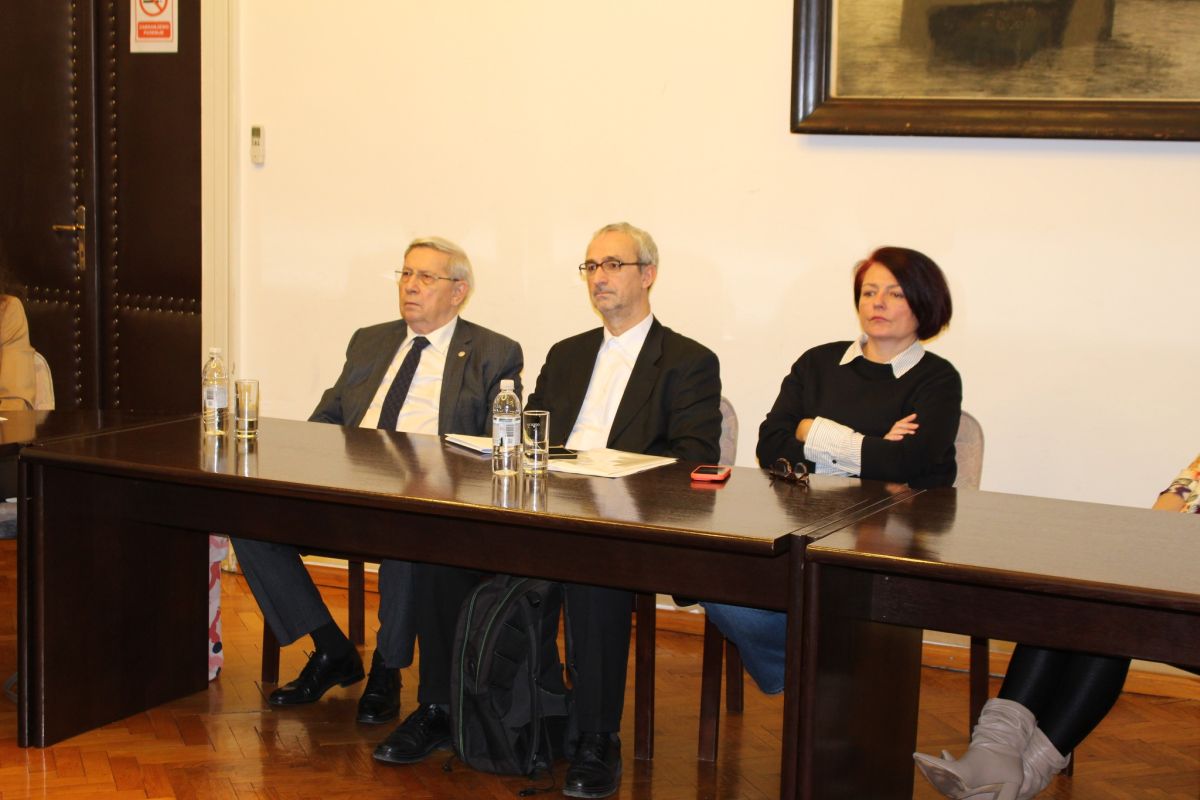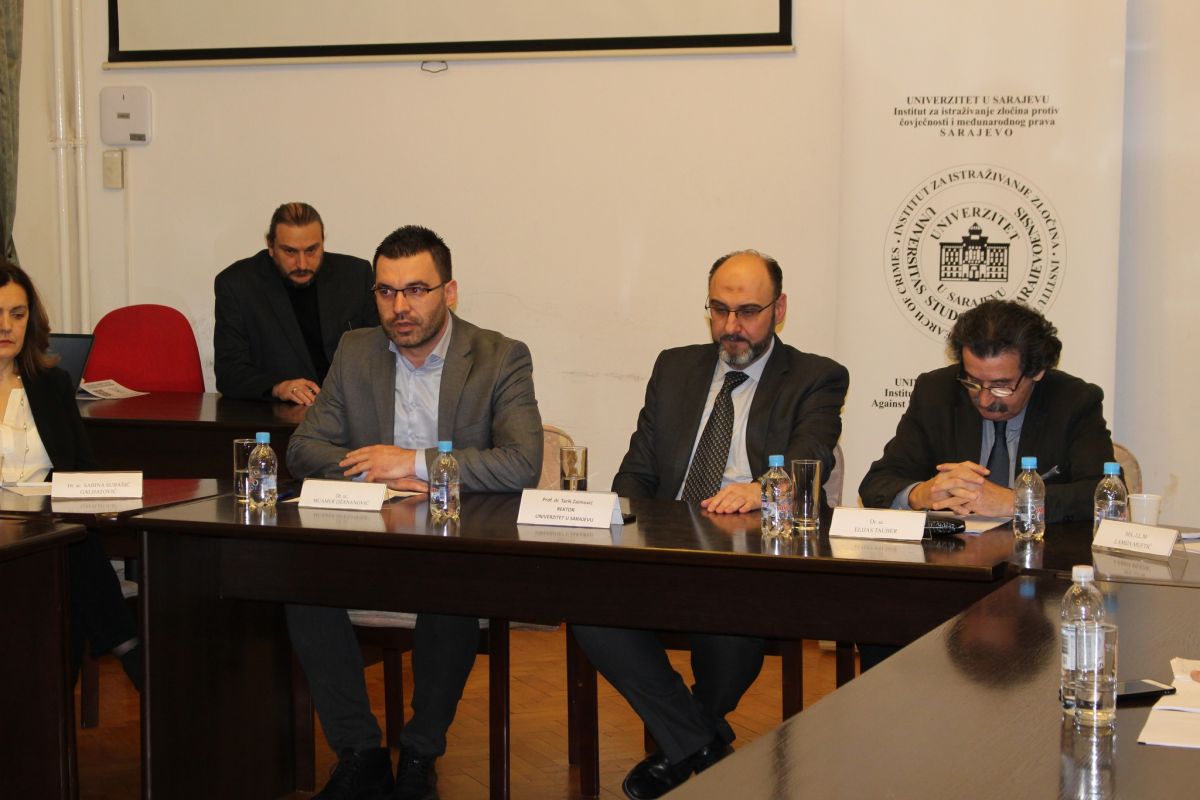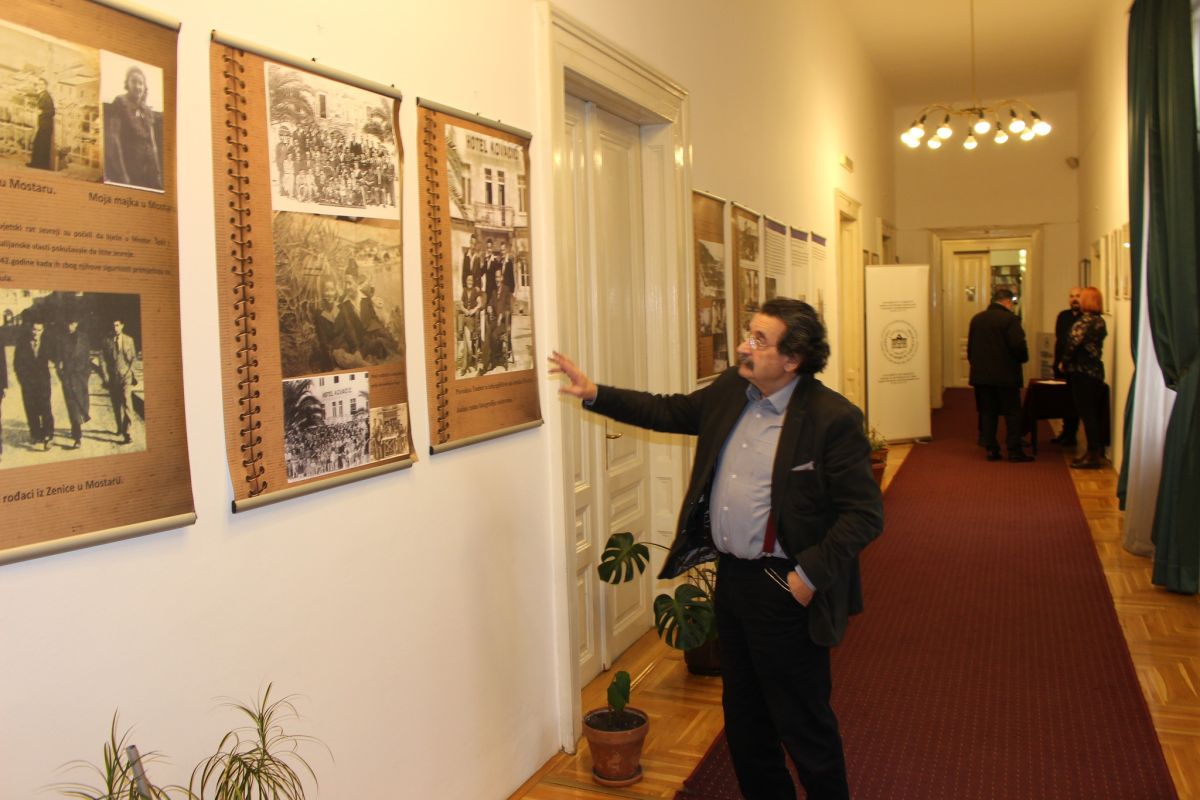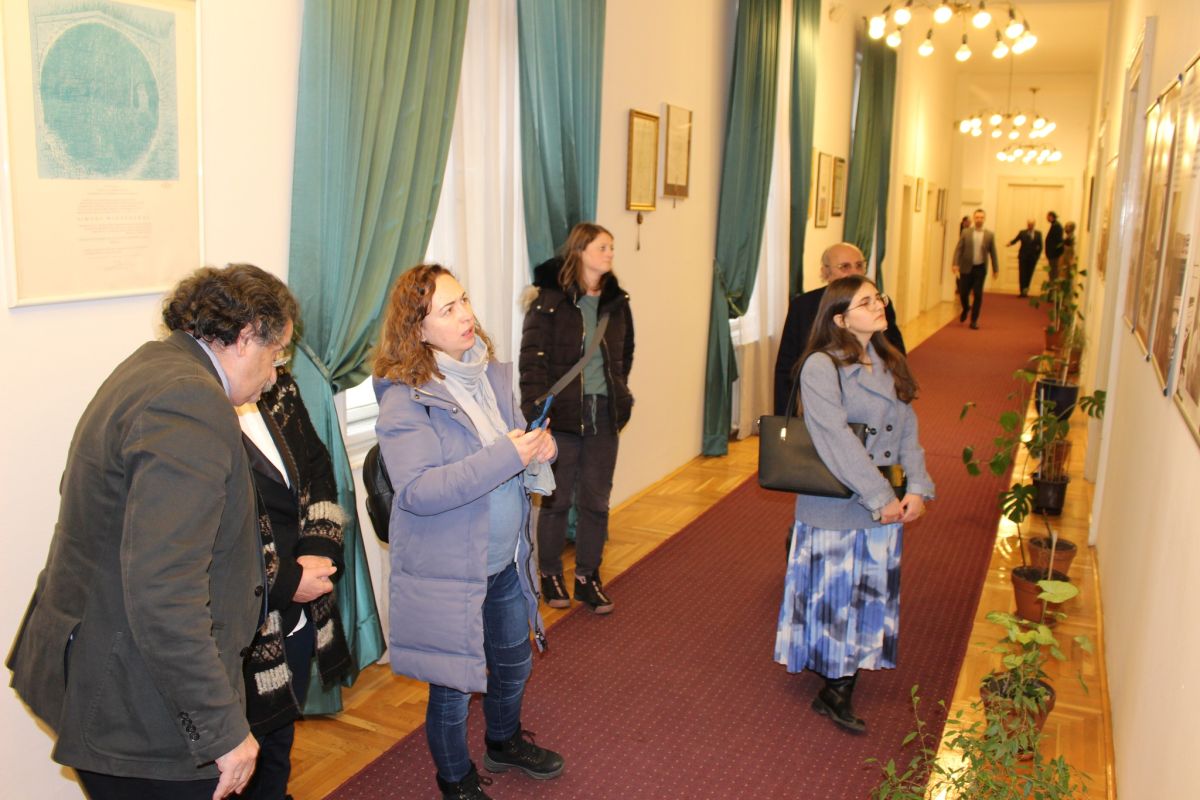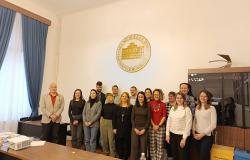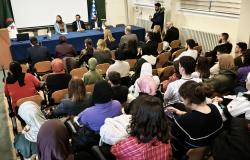Scientific Forum Held on the Occasion of Commemorating 27 January– International Holocaust Remembrance Day

At the University of Sarajevo Rectorate, a scientific forum titled “Eighty Years Since the Liberation of Auschwitz” was held in commemoration of January 27 – International Holocaust Remembrance Day, organized by the University of Sarajevo’s Institute for Research of Crimes Against Humanity and International Law. Accompanying the forum was the exhibition “My Family in the Holocaust,” authored by Dr. Sc. Elias Tauber.
The forum commenced with introductory remarks from Professor Dr. Tarik Zaimović, Rector of the University of Sarajevo, and Dr. sc. Muamer Džananović, Director of the Institute for Research of Crimes Against Humanity and International Law.
Tarik Zaimović emphasized, among other points: “Colleague Tauber has provided us with a human dimension through the photographs that form part of the exhibition. The discussion surrounding the Holocaust, particularly regarding everything we have failed to achieve when we asserted that we would never allow such atrocities again over the past 50 years, is a theme that must be reiterated, as it seems we forget these photographs and the powerful message they convey amidst the political compromises we navigate daily.”
During his presentation, Muamer Džananović remarked: “After World War II, a promise of ‘never again’ was made, inspired by the horrific scale of crimes and the Holocaust against the Jews. The adoption of the Convention on the Prevention and Punishment of the Crime of Genocide in 1948 legally defined genocide as a distinct crime, enabling the prosecution of perpetrators. However, despite the aim to liberate humanity from such atrocities, they have occurred in many regions of the world throughout the remainder of the 20th century, including Bosnia and Herzegovina, where genocide was perpetrated against the Bosniaks. Crimes embodying all elements of genocide have persisted into the 21st century, as evidenced by the brutal killings and crimes in Gaza, Ukraine, and other parts of the world, which our current society witnesses in 'live' broadcasts. The reality of our age reveals that 'man' invests ever-increasing intellectual and financial resources into refining and augmenting the production of weapons for the 'efficient' destruction of humanity. This reality presents a paradox with a deeply inhumane thread. Auschwitz and numerous other memorials dedicated to the Holocaust today bear witness not only to the magnitude of these crimes but also to the vital importance of preserving the memory of these horrific acts, which is essential for reinforcing awareness of the significance of combating all forms of violence, intolerance, and discrimination.”
Participants in the forum included Dr. Sc. Elias Tauber, Director of the Jewish Community Archives in Bosnia and Herzegovina, who presented on the topic “My Family in the Holocaust,” Dr. Sc. Sabina Subašić Galijatović, Senior Research Associate at the University of Sarajevo’s Institute for Research of Crimes Against Humanity and International Law, who discussed the suffering of Jews in Bosnia and Herzegovina during the Holocaust, and MA, LL.M. Lamija Muftić, Senior Professional Associate at the same Institute, who presented her work on “Indelible Traces of the Holocaust.”
Elias Tauber spoke about the consequences of the Holocaust in Bosnia and Herzegovina, reflecting on the suffering of his own family. He highlighted that the persecution and mass murder of Jews in Sarajevo left deep wounds not only on survivors and their families but also on the entire community. Speaking from a personal perspective, he recalled the fate of his family, which, like other Sarajevo Jews, was a victim of systematic annihilation during World War II.
Subašić Galijatović stated: “The testimonies of the rare survivors of the camps must remain recorded in our collective memory. Our fellow citizens were killed due to their names and surnames, their affiliation with specific groups, in the cities where they lived, as well as in numerous camps they passed through, which we are obliged to remember – Gospić, Sajmište, Banjica, Kampor on Rab, Ferramonti, Bergen-Belsen, Auschwitz-Birkenau, and many others. Today, in Bosnia and Herzegovina, there are no longer surnames such as Adler, Arneti, Ast, Augenstein, Carfati, Cindrof, Daniti, Ebenstein, Hahn, Hausner, Hazan, Kajon, Kampus, Kario, Katan, Kalderon, Kohen, Konforte, Kamhi, Pesah, Najman, Neuer, Perera, Singer, Sojcher, Spitzstein, Temes, Trinki, Tuvi, Nahmijas, Volach, Zeit, and many others. This is merely a fragment of the names of 1,308 children from Sarajevo who were victims during the Holocaust… In our city, there is not a single memorial plaque, nor a single recorded story of these children, which obliges us to continue our work on memory and memorialization.”
Lamija Muftić added: “Education and instruction about the horrors, profound divisions, and losses resulting from the Holocaust are especially relevant today, with the rise of anti-Semitism and general intolerance and prejudice, both globally and in Bosnia and Herzegovina. The Bosnian-Herzegovinian society, having endured yet another genocide and profound ethnic division, has a strong interest in the long-term construction of a democratic and stable society that preserves the memory of its own plurality, of which the Jewish population is an integral part. In this regard, the remembrance of the immense loss of human capital, as a consequence of hatred, intolerance, racism, and prejudice during World War II from which neither its Jewish population nor the society as a whole has ever fully recovered, represents an active act of fighting for a pluralistic identity and a significant lesson for present and future generations. The repercussions of the depletion of cultural pluralism through the drastic reduction of the Jewish population resonate across all aspects of society, which still learns lessons regarding the dangers posed by ultra-nationalistic ideologies and religious intolerance or hatred.”
